- Home
- Aharon Appelfeld
Laish Page 3
Laish Read online
Page 3
And so we move on. When one of the old men passes away, we quickly bury him in the local graveyard and then hurry along. For the sake of the elderly we should move faster, but laziness and sheer wickedness hold us back. The old men plead and clench their jaws, but the force of wickedness is stronger than everything. I have to admit that these delays are often my own moments of grace. When we stay somewhere for a week or two, I manage to note down the details of the place and the day’s events. I no longer fear the notebook. I write, and the Hebrew letters fill me with a zest for life. A proper sentence that emerges from my pen makes me happy for the entire day. The dealers and the wagon drivers do not view this kindly, and whenever they notice me writing, I catch their menacing glances. I write early in the morning, before prayers, or sometimes in the evening, in the woods. A few days ago I wrote the word “mother,” and I was instantly terrified by this slip. On the days that no words come, or when my hands are as heavy as lead, I read what Old Ya’akov wrote. His writing is very much to the point, concise and without a superfluous letter.
From leafing through, I learn that Old Ya’akov was seventy when he joined the convoy. His wife was no longer alive, and his sons, traders, begged him not to set out on the pilgrimage. But he ignored them. At first he was certain that it would not be a long journey and that he would reach Jerusalem quickly. But later he learned the hard way that the convoy was not led honestly, and that the wagon drivers and the traders had their own reasons to hold it up. He tried warning the others, but people were afraid. Even his friends, the old men, courageous people, begged him not to provoke the thugs. With great pain and no alternative, he started recording in his notebook what happened to the convoy. He began like this: “Since the death of Shimon the Righteous, the dealers and thugs have taken charge of the convoy. They are crude, insensitive people who neither pray nor study Torah; the only thing that concerns them is their money. I don’t know where they want to take us. Day after day, the name ‘Jerusalem’ is taken in vain. I’ve decided to write down all our humiliations, so that those who come after us will know how crooked are the ways of man.” Elsewhere in the notebook he recorded, “A young person can flee his house when it goes up in flames, but we old folk cannot run away. Taking even small steps means suffering. Every day we bring our slightest gestures and entreaties before God, for Him to do with as He pleases. We have run aground and there’s no way out. I wish to warn pilgrims to the Holy Land not to be seduced by those who speak in lofty words. The world is full of scoundrels and people whose only love is money, and the path to Jerusalem has many pitfalls.”
Old Ya’akov’s insights were very clear. He called Fingerhut “an irredeemably vicious man.” In another entry, he was more compassionate and called him “a wicked man who wallows in his own suffering.” I find it hard to take leave of Fingerhut’s memory, and not only because he used to give me my daily bread. I saw all his dealings, could almost touch them. I say his “dealings,” yet I’m not sure that this is the right word. He was of medium height, always wrapped in his cloak, which gave him a clumsy appearance, but his smile was sharp and bitter. More than anything, it revealed that no wrongdoing could be hidden from his eyes. He loathed the self-righteous. His sickness spread through his body and found its way to wound him deep inside. Deeper than he imagined.
5
We left Shazov and encamped on the banks of the River Prut. The Prut was not wide there, but its current was strong and flowed swiftly. The wagons were open, the horses were grazing in the meadow, and people were preparing their dinner. It was a time of day that somewhat lightened the heavy gloom that enveloped our wanderings, because you could see people’s faces and the movements of their hands. Their faces were still tense, but preparing the meal calmed them. Even Ploosh, on his knees, was splitting branches for firewood; not a trace of sullenness could be found in his face. The years in prison were no longer visible on him now. He was like an elderly peasant who has been widowed and has no choice but to learn how to prepare his own meals.
Since Fingerhut’s death I live without a master. I wake people for prayers, pray, and afterward go to the woods to gather firewood. In exchange for a bunch of twigs, I get two slices of bread spread with oil, or a bowl of soup. In the afternoon I go out to the village to buy provisions for people. People also pay me something for these errands. My teacher, Old Avraham, told me that it is forbidden to go to sleep with money that others might need; to uphold this precept I make sure to check my pockets every evening, and if I have any extra coins, I give them to Blind Menachem. Menachem is a quiet man with few needs; his presence is so insignificant, he is hardly there at all. And yet the wagon drivers plotted to send him away. Indeed, once they even put this scheme into action. Their evildoing cried out to heaven. The old men declared a fast, and the wagon drivers were compelled to go back to collect him. Since then he lives in fear, and his existence has become even more restricted. Whenever anyone approaches him, he trembles.
Menachem was one of the first of those whom the Holy Man gathered about him. He believed that in Jerusalem, Menachem’s eyes would be opened. Menachem was about twenty years old at the time. Even now, his sealed eyes retain some youthful characteristics. But over the years, anxiety and fear have left blotches on his face—brownish-yellow stains that distort his appearance. Most of the day he sits quietly, listening attentively. Even at night, he doesn’t sleep so much as he naps, half wakeful. At times, when it seems to him that the wagon drivers intend to throw him off his wagon, he shouts out and frightens everyone. He isn’t afraid of me. He asks me details about new places we come to, and I tell him. Sometimes he asks me to make him a mug of coffee. Once, when I came to wake him for prayers, he told me how hard it was for him to pray with the old men. I understood him. Prayer doesn’t come easily to me, either.
“Pay no attention to the senses, they only lead you astray. The mitzvos make a man stand tall.” My teacher, Old Avraham, attempts to drum this into me, but try as I might, I find that—may God forgive me—the mitzvos weigh heavily on me sometimes. It seems to me that the day will come when these commandments will be canceled and other, nobler ones will replace them.
I love the evening prayers. During them, more so than during any of the other prayers, I sense the presence of my parents, who were cut off from me. For days on end I may not think of them or recall them, but sometimes during the evening prayers they rise from the dead and are pulled toward me, and the barrier between the living and the dead is dissolved. Not that this miracle occurs every evening. On the contrary; at times during the evening prayers a bitter mood descends upon me. It darkens my eyes, and I feel my orphanhood all the more keenly; it is as if my life is not rooted in the world and I want to disappear, just as Fingerhut disappeared into a hole.
“Will we reach Jerusalem one day?” I asked Blind Menachem.
“Of course.”
“How do you know?”
“The Holy Man promised me.”
True, sometimes his faith can waiver and he can be in the grip of anxiety and fear. Once he woke me up during the night because it seemed to him that the wagon drivers were about to throw him off his wagon. His terror was unfounded. The following day he asked my forgiveness, as if I were a grown man. People often take pity on him, giving him a slice of bread or a bowl of soup. When he’s eaten his fill and in good spirits, he describes Jerusalem to me, and a youthful light fills his face.
“What did the Holy Man promise you?” I asked with great foolishness.
“I’m not allowed to speak of it,” he said, his face showing his shock. Like all of us here, he, too, has grave secrets. Wicked men sometimes remind him that his elder brothers abandoned him without a penny. He himself never talks about them, but when he hears their names, the blotches on his face redden. The old men draw him into their prayers, and afterward they give him a shot glass of whiskey. On the Sabbath, he’s sometimes called up for an aliyah to the Torah. About our Holy Ark and the two Torah scrolls that are jostled about on our w
anderings, I’ll tell more in due course. The old men are extremely worried about them, and they never leave them unguarded.
As I’ve already said, in summer our progress is slow, and we seem to be crawling. The wagons are parked in town squares or by the banks of rivers, commerce flourishes, and Jerusalem is forgotten. The old men threaten punishments from heaven but the traders ignore their threats.
And at times—and this will sound strange—the old men themselves cause the delay, out of pure despair. At the beginning of the summer we were in Premishlan, hardly a bustling commercial center. The others wanted to press forward, but it was actually the old men who kept us back. They clung to the memory of the Holy Man of Premishlan and would not budge from the place for several days. The old men sometimes frighten me, for they seem to me like people who are not of this world. But when they open a book and immerse themselves in it, they study the same way young people study. They read a line and interpret it, checking what comes before and what follows; if they find a special word, they immediately ask what could have made the Holy Man put it in just there. Their way of studying, like their prayer, has a kind of forward movement, in the manner of people who are sure of what they think. I want to learn from them, but I don’t know how to. My teacher, Old Avraham, is reading The Path of the Just with me. He really loves this book. With every line, his face lights up. But for some reason, the words grate on me. Sometimes, when my teacher points to some virtue or other, I feel an uncleanness. And it’s clear to me that I will not attain spiritual heights because of the impurity of my body. About the travails of my body I will speak when the time comes, but for now I’ll say this: I sometimes bathe in the river, I swim, and I set up a rod and try to fish. In Shazov I reeled in an enormous fish; I brought it to the wagons, where it immediately aroused wonder. The women set to grilling it over the coals and said, “Laishu is a good lad.” At that time of day, the old men were sitting under one of the trees; they looked at us with a piercing gaze, as if we weren’t Jews but wild men.
Meanwhile, the month of Tammuz has come to an end. The old men stand alongside the wagons and call on everyone to repent. At this time of year their faces are sunburned and they seem ageless; their eyes are alert and their voices ring out clearly. But their influence here is limited. Only on certain days, or, really, during certain hours on Rosh Hashanah and Yom Kippur, do people listen to them. Nevertheless, they stand alongside the wagons and proclaim what the Torah demands of all of us: “For the Lord your God walks in the midst of your camp, and therefore shall your camp be holy.” They repeat this sentence over and over, without getting tired.
Menachem told me that he had been tortured by bad dreams during the night and asked me to take him to prayers.
“What happened?” I try to draw near to him.
“I dreamed that thugs pulled me off the wagon, and I tried with all my might to cling to the boards.”
“And could you?”
“No.”
“They wouldn’t dare to do it.” I try to calm his fears.
Menachem revealed to me that over the past year his faith has become weak; without faith, he’s in the clutches of bad dreams. Dreams are a person’s waste products. When a man is connected to his faith, dreams have no sway over him. His words surprised me.
“How do you know?” I ask.
“That’s how I feel.”
Apparently, Menachem is not so simple. He takes in everything that goes on around him. His hearing is sharp, and not the slightest detail escapes him. I told him that since the death of Fingerhut my sleep is not what it used to be, either.
“Fingerhut scared me.” He revealed a small bit.
“What scared you about him?”
“His laugh. Sometimes he would laugh at night.”
That evening Menachem told me that his parents had very much wanted him to marry. They even found him a sighted woman, ten years older than he and wealthy, but he vehemently refused.
“She must have been terrible,” I said for some reason.
“I have no idea. It’s best that a blind person not marry.”
“Why?”
“Because he’s blind. The blind are targets for all kinds of brutalities.”
“But they have excellent hearing.”
“Every day, I tell myself over and over that man has come from the darkness and he will return to the darkness. Life is hard and painful, though we’re fortunate that it’s short.”
There was a kind of chilling clarity in his voice. I was awestruck, and tears welled in my eyes.
6
One morning Ploosh came over to me and said, “You’ll be working for me.”
I froze on the spot.
“I’ll give you what Fingerhut gave you.”
“I work for the old men.” I tried to save myself.
“Liar.”
“I gather and bind firewood for them.” I trembled.
“That’s not work, that’s sheer sloth.”
Ploosh drove our wagon, which was hitched to two sturdy horses. The dealers had bought the horses a year ago, and since then Ploosh was our wagon driver. He has no friends and spends most his time with the horses. In summer, when we pitched camp frequently, he worked as a day laborer in fields or gardens. In the evening, when he came back from the fields, he would feed and water the horses, and immediately collapse.
The wagon drivers are creatures unto themselves—people call them thugs. They are tall and sturdy and look like peasants, and each of them has a dreadful history. In any case, our thug is called Ploosh. That appears to have been his nickname in jail. The years of jail are evident in all his ways. He treads heavily and his face is always grim. He loses his temper at the slightest provocation. Most of the day, he doesn’t utter a word.
In the evening, before going to sleep, he will mutter a few choked syllables that sound like warnings and then fall asleep. Even his sleep is not like our sleep: he sleeps on his belly, and when he wakes up in the morning, his face is red and covered with wisps of straw. Only the old men draw near to him. He is quiet and submissive in their presence. Sometimes, in the evening, he comes to prayers, answers “amen” to one or two of the blessings, and then takes off. He spends the entire Sabbath sleeping on his pallet. In the morning, he thrusts his hefty right leg out of the bedding, and that is a warning signal not to wake him.
The old men do not call him Ploosh, but Pinchas. When he hears this name, his lips twist into a clumsy smile.
“The new month has come as a blessing upon us.” One of the old men approaches him.
Ploosh hastens to his feet, as if the chief jailer has come to reprimand him.
“Wouldn’t it be nice if you joined the morning prayers?” The old man speaks pleasantly to him.
“Yes, sir,” Ploosh hastens to respond.
“Laish will come to wake you, so don’t hit him.”
At this comment, his heavy features break into a smile and he lowers his head.
“Laish is an orphan, so he shouldn’t be beaten.”
“I won’t beat him,” says Ploosh, without lifting his head.
All the same, I was afraid to wake him up. One of the old men woke him. Ploosh muttered something unintelligible and promised to get up, but he did not.
Not all the wagon drivers are like Ploosh. Among them are some God-fearing men who rise early for prayers. Since Ploosh has taken me to work for him, I’ve kept my distance, escaping his wrath and trying to stay near the old men. After prayers, I make black coffee for them. They love this drink, and they sip it slowly, singing its praises. I love to listen to their mumblings at this hour. Were it not for my teacher, Old Avraham, who supervises everything I do and instills fear within me, I would spend all my time with them. It seems as though he is always about to reprimand me. Nevertheless, I mustered the courage to tell him that Ploosh had forced me to work for him.
“It’s forbidden to work for him,” the old man stormed. “You are not allowed to associate with such an ignoramus.”
/> “But he’s threatening me.”
“It is forbidden to be frightened by human beings.”
“He’s got his eye on me.”
“You must learn to stop being afraid of human beings.”
“My teacher, how do I do that?”
“You have to immerse yourself in the river and recite the blessings He who releases those who are bound and He who straightens those who are bent. These blessings will teach your body not to fear.”
I brought my torn clothes to Tzilla and left them next to her. Suddenly she raised her head and looked at me. Until then I hadn’t seen her eyes. Her gaze was sharp and went right through me. Her eyes did not leave me for the entire day. In the evening, when I came back to collect my clothes, she looked up, opened her silent mouth, and said, “Laish.”
“What?” I was astonished.
“We are near the town where your dear dead mother was born,” she revealed.
“I didn’t know.”
“Your mother and I were in the same isolation ward when we had typhoid,” she said, and her face closed at once.

 Long Summer Nights
Long Summer Nights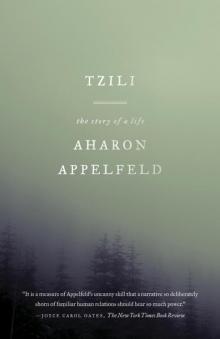 Tzili
Tzili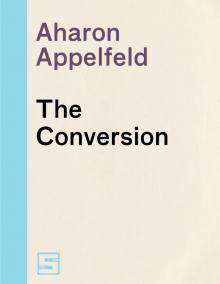 The Conversion
The Conversion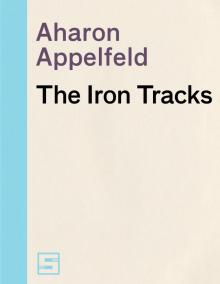 The Iron Tracks
The Iron Tracks All Whom I Have Loved
All Whom I Have Loved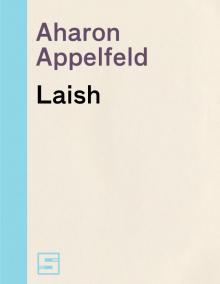 Laish
Laish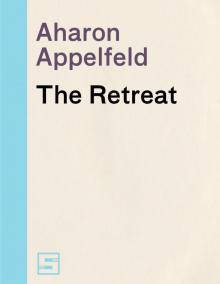 The Retreat
The Retreat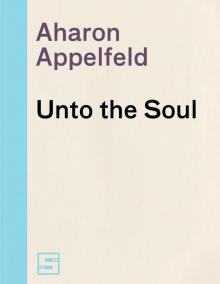 Unto the Soul
Unto the Soul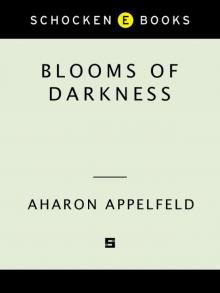 Blooms of Darkness
Blooms of Darkness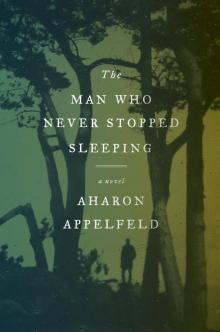 The Man Who Never Stopped Sleeping
The Man Who Never Stopped Sleeping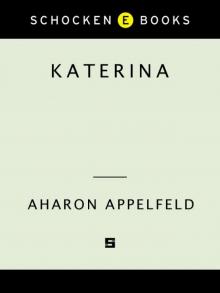 Katerina
Katerina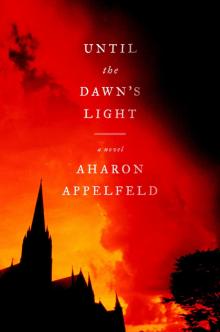 Until the Dawn's Light
Until the Dawn's Light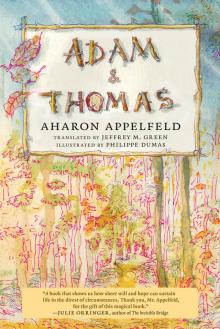 Adam and Thomas
Adam and Thomas Suddenly, Love
Suddenly, Love